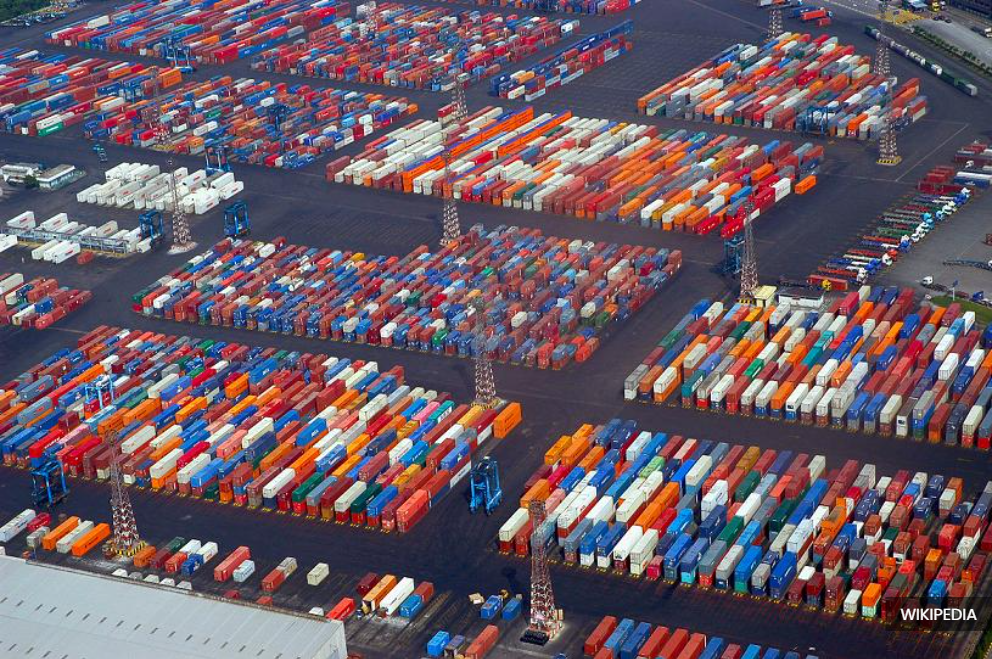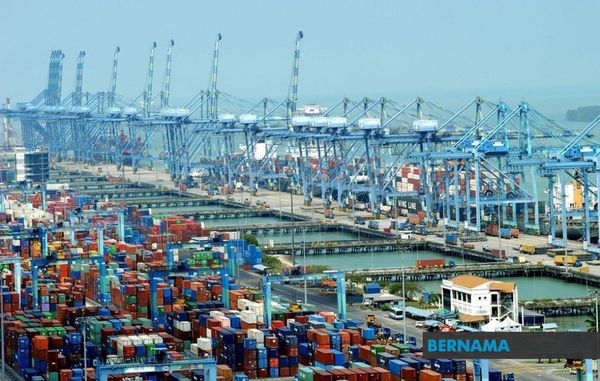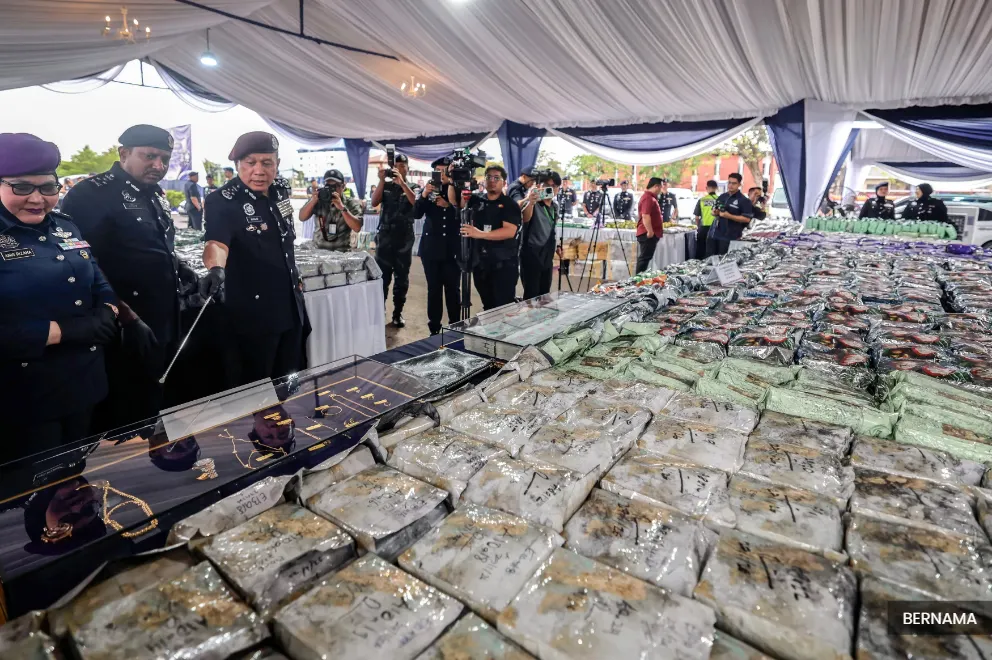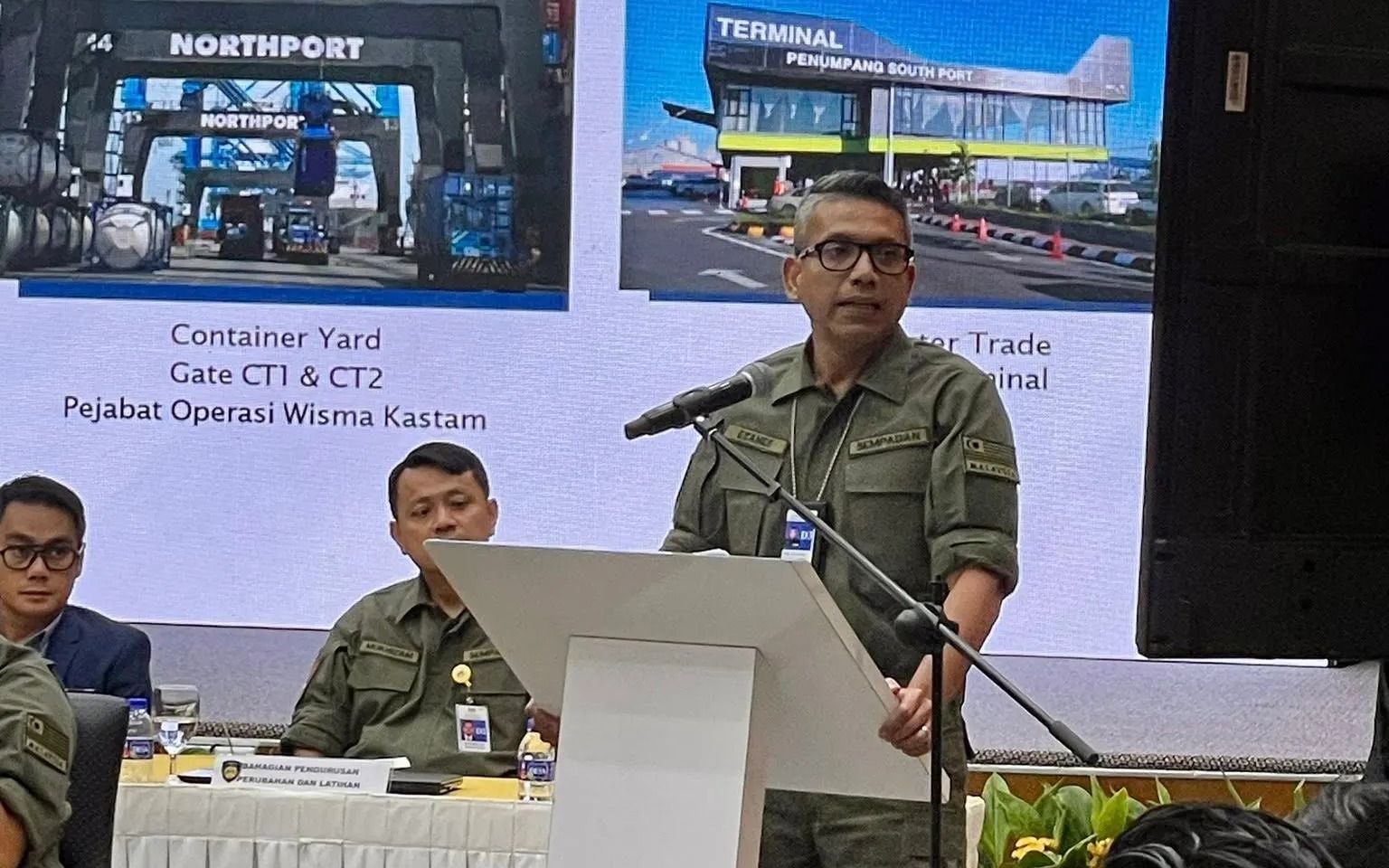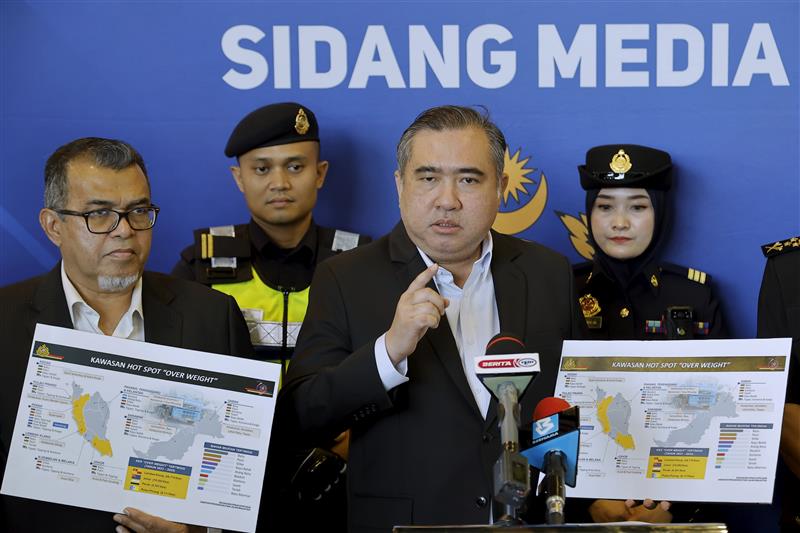KUALA LUMPUR, Nov 24 — Port Klang has officially secured its place among the world’s Top 10 container ports in the Lloyds List of the World’s Top 100 Ports 2025, with the historic milestone being reached with the handling of 14.64 million twenty-foot equivalent units (TEUs) in 2024.
This achievement not only marks a turning point for Malaysia’s maritime sector but also cements Port Klang’s reputation as a strategic transshipment hub and gateway to global trade.
Securing the 10th position places Port Klang among an exclusive group of globally recognised ports, reflecting its growing competitiveness and rising prominence in the international maritime landscape.
Port Klang Authority (PKA) general manager Captain Subramaniam Karuppiah highlighted that the achievement represents more than a numerical ranking. “It underscores the success of the port’s holistic development strategy in not just building more terminals but also building smarter and greener,” he told Bernama in an interview.
He said Port Klang’s record throughput of 14.64 million TEUs in 2024 was driven by strong trade recovery and supported by efficient port operations, regional supply chain stability, as well as partnership with major shipping lines. He attributed Port Klang’s consistent rise to leadership and partnership, strong policy support, operational efficiency, infrastructure development, sustainable port development, and human capital development.
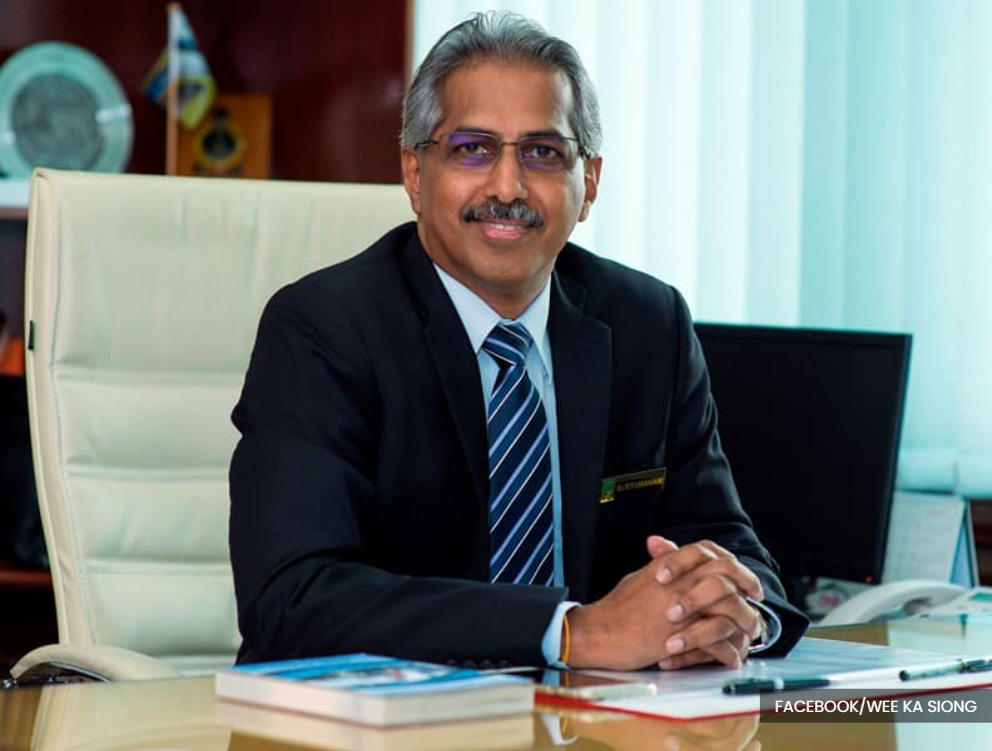
Leadership and partnership
Port Klang’s credibility as a global maritime hub is anchored in its robust leadership and strategic partnerships. At the helm is the PKA, which plays a pivotal role in shaping the port’s development through leadership, policy direction, and regulatory oversight.
PKA’s governance ensures that Port Klang remains aligned with national priorities while adapting to the dynamic demands of international trade.
Collaboration is a cornerstone of Port Klang’s success. PKA maintains strong ties with Northport and Westports, government agencies, and logistics players to foster a unified approach to logistics development and service delivery. These partnerships enable seamless coordination across the supply chain, enhancing efficiency and responsiveness.
On the global stage, PKA engages actively with international bodies such as the International Maritime Organisation (IMO), the International Association of Ports and Harbours (IAPH), and various regional port networks.
These alliances facilitate knowledge exchange, policy harmonisation, and the adoption of best practices, thus reinforcing Port Klang’s role in shaping the future of maritime logistics.
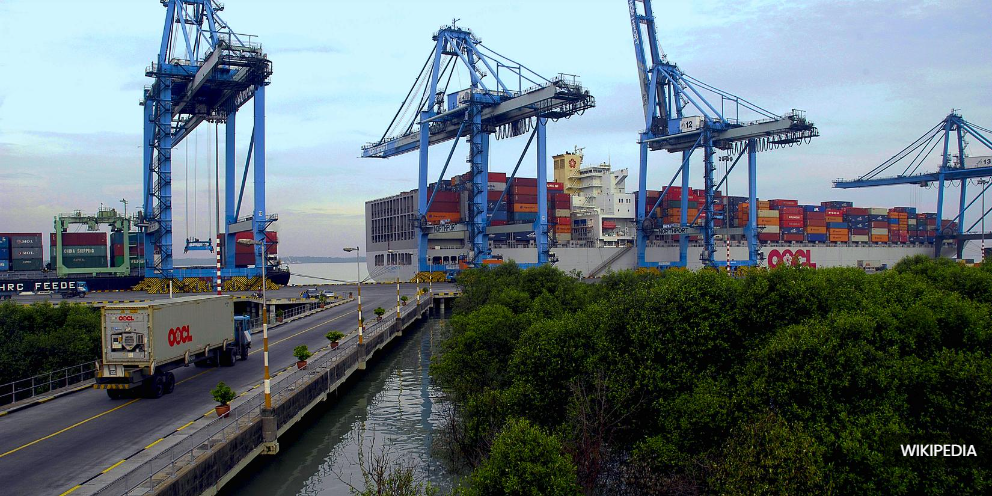
Strong policy support
Port Klang’s development trajectory is deeply aligned with Malaysia’s broader vision under the National Transport Policy and the Malaysia Madani agenda, both of which reflect a commitment to sustainable, inclusive, and forward-looking growth.
Central to this alignment is the National Logistics Task Force (NLTF), under the Ministry of Transport; the NLTF plays a pivotal role in coordinating logistics development, enhancing efficiency, and driving regulatory reforms. It serves as a strategic integrator of policy direction, fostering collaboration between the public and private sectors to strengthen Malaysia’s logistics and supply chain ecosystem.
Through the efforts of the NLTF, the country is witnessing a wave of government-led digitalisation initiatives for a resilient and competitive transport and logistics ecosystem.
Operational efficiency
Port Klang continues to solidify its position as Malaysia’s premier maritime gateway, as demonstrated by its consistent and remarkable performance. The continued rise of the port globally is not just due to continuous infrastructure investment but also technological upgrades to reinforce its capacity to handle increasingly sophisticated trade demands.
Digitalisation is a cornerstone of the port’s transformation agenda, with initiatives such as the Malaysia Maritime Single Window and adoption of smart port technologies, to not only enhance operational efficiency but transparency as well.
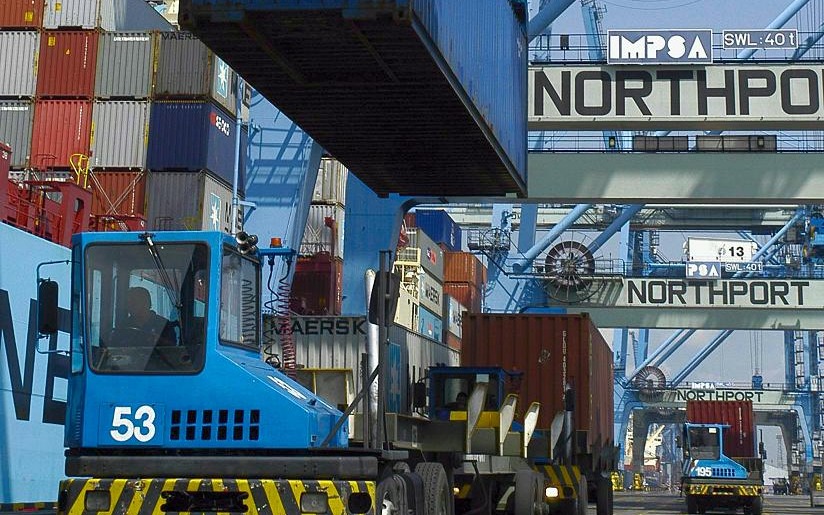
Port Klang, with its strategic location, serves as a vital link between Asean, China, and the broader global trade network. Its performance and development play a crucial role in strengthening Malaysia’s logistics ecosystem and advancing national efforts in trade facilitation to position the country as a leading player in the global maritime landscape.
Infrastructure development
Port Klang’s infrastructure landscape is undergoing a transformative chapter. The port’s dual terminal strength is exemplified by the ambitious Westports 2 Project, where this long-term development will more than double the port’s handling capacity to 27 million TEUs by 2054 from 14 million TEUs. This will be achieved through the integration of deepwater berths and advanced automation technologies to ensure future-readiness for global trade demands.
Simultaneously, Northport is enhancing its operational capabilities to boost efficiency and competitiveness under its five-year upgrading blueprint, including the development of new container yards, the upgrading of wharf infrastructure, and the acquisition of new terminal equipment.
On the landside, federal support has been pivotal in enhancing last-mile connectivity. The most recent was the RM50 million allocated for the maintenance and upgrading of access roads in Port Klang to improve traffic flow and port accessibility.
Intermodal links will be further enhanced through integrated rail and road networks via the ongoing East Coast Rail Link project as well as the Pulau Indah Expressway Route 3, West Coast Expressway, and South Klang Valley Express projects.

Sustainable port development
Sustainability has emerged as a defining factor for future growth, with Port Klang embracing green port development and a strong commitment to Environmental, Social, and Governance (ESG) principles.
Both Westports and Northport are at the forefront of this transformation, with their adoption of a range of eco-friendly technologies and practices. These include solar energy systems, energy-efficient e-RTG cranes, LED lighting, and rainwater harvesting mechanisms.
Good environmental stewardship is also seen in the adoption of LNG bunkering, biomass energy use, and comprehensive air and water quality monitoring systems. Environmental programmes such as mangrove rehabilitation, river clean-ups, and green landscaping further align Port Klang with Malaysia’s net-zero emission goals and the nation’s broader Blue Economy aspirations.
Human capital development
Port Klang’s success is rooted in the strength of its human capital.
“Technology drives productivity, but people drive transformation. We are building the next generation of maritime professionals to lead Port Klang into the future,” said Subramaniam.
To ensure sustained growth and innovation, Port Klang invests heavily in continuous training and upskilling. Technical programmes, a strong safety culture, and digital competency development initiatives equip employees with the tools needed to thrive in an evolving maritime landscape.
This commitment to workforce development not only enhances efficiency but also supports the port’s broader goals of sustainability and digital transformation.
By aligning human capital development with long-term strategic priorities, Port Klang is cultivating a workforce that is ready to meet the challenges of tomorrow’s global trade environment.
A bold and visionary future
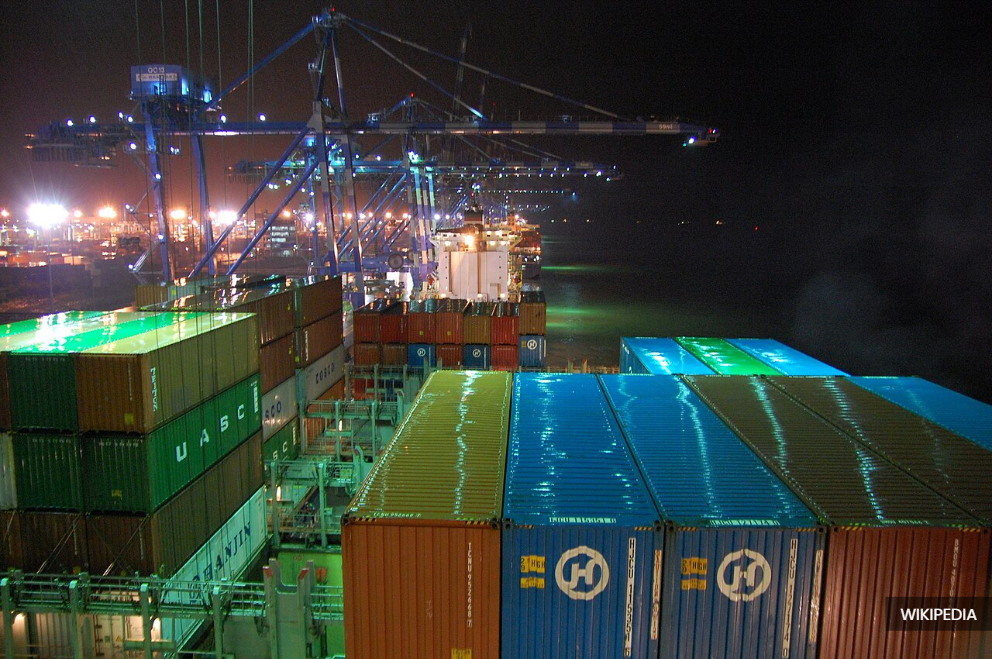
Looking ahead, Port Klang is charting a bold and visionary course with the Carey Island Third Port Development, a transformative initiative that will redefine its long-term capacity.
Designed to handle up to 30 million TEUs annually, this project marks a decisive leap toward a smart, automated, and sustainable port ecosystem, one built to meet the evolving demands of global trade.
At the heart of this project is the Maritime and Industrial Free Trade Zone, which will act as a powerful catalyst for industrial growth, logistics integration, and international investment.
With this ambitious expansion, Port Klang is not merely safeguarding its position among the world’s Top 10 ports but also setting the stage to ascend to new heights of influence.
By broadening its reach across regional and international trade networks, Port Klang is poised to be the driver that will shape Malaysia’s trajectory as a maritime nation.
